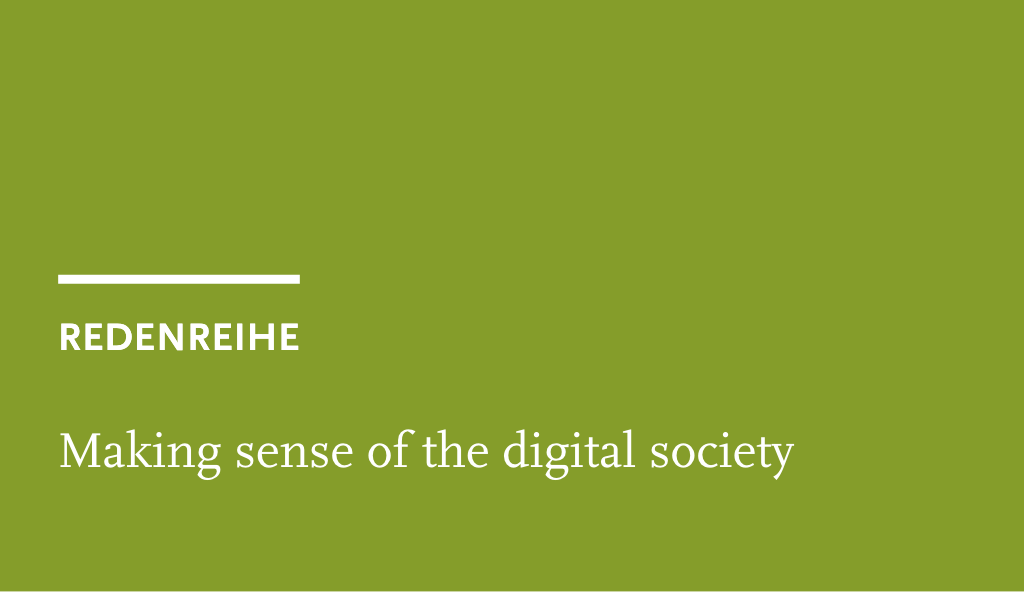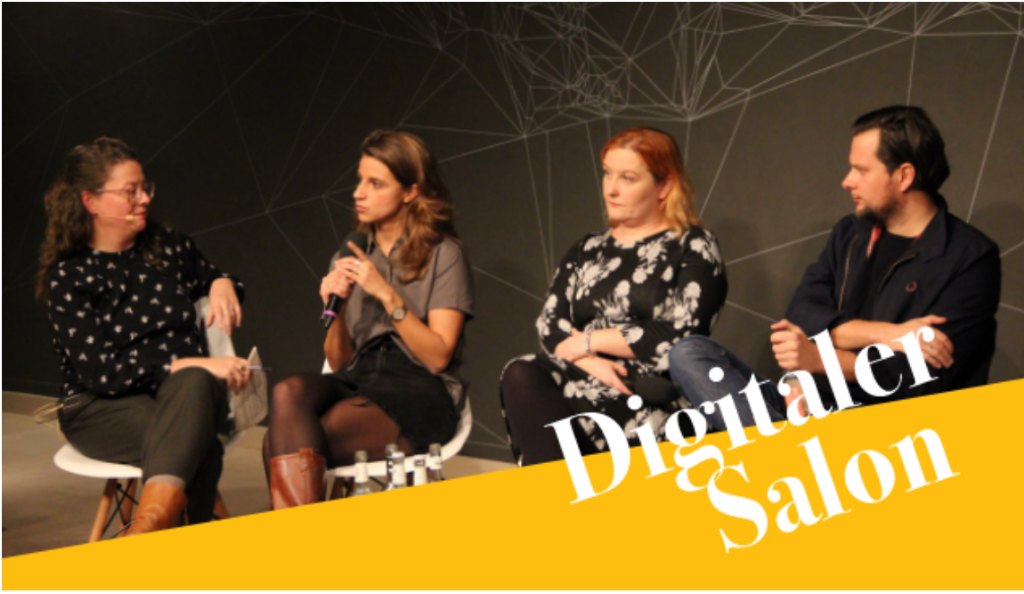
„Wir sind auf einer Mission“: Erforschung der Rolle zukünftiger Imaginäre | Workshop
Astrid Mager und Christian Katzenbach organisieren am 27. April 2018 einen Expertenworkshop zur Rolle von Zukunftsvorstellungen für die Entwicklung und Lenkung digitaler Technologien. Der Workshop findet auf Englisch statt. Die Anmeldefrist wurde bis zum 25. April verlängert.
“We are on a mission to build a more open, accessible, and fair financial future, one piece of software at a time” promises the software platform Blockchain. “Imagine if everyone could get around easily and safely, without tired, drunk or distracted driving” envisions the self-driving car company Waymo (a subsidiary of Google’s parent company, Alphabet Inc.). “The Regulation is an essential step to strengthen citizens‘ fundamental rights in the digital age and facilitate business by simplifying rules for companies in the Digital Single Market” claims the European Commission with regard to the General Data Protection Regulation.
These examples show how imaginaries of future societies are enacted to promote digital innovations or legitimate certain modes of internet governance. They illustrate how software providers, tech companies and legislators dig into the rich pool of cultural norms, visions and values to support (or question) digital tools, rules and regulations. Future prospects seem to be central for making decisions in the present.
WORKSHOP
“We are on a mission”
Exploring the role of future imaginaries in the making and governing of digital technology
Friday, 27 April 2018 | HIIG | Französische Straße 9 | 10117 Berlin
Keynote: Sally Wyatt, Professor of Digital Cultures, Maastricht University
Programme
09:00 Welcome
09:15 Keynote: ‘Imagine you are an iPhone, recharging’. Technological imaginaries in fiction, policy and everyday life Sally Wyatt (Maastricht University)
As more and more attention is given to mindfulness and digital detox, it was a surprise to hear my yoga teacher asking us to imagine being iPhones. It set me thinking (probably not the intention of my yoga teacher) about the multidirectional nature of imaginaries in the making and governing of digital technologies. In this lecture, I will examine different sources of future imaginaries – such as novels, films, metaphors, policy documents – and how they might affect designers, industrialists, policy makers, and (non)users (in all of their potential roles as citizens, consumers, patients, passengers). I will also pay attention to the recursive relationship between imaginaries and the realities they attempt to describe or construct.
10:00 Session 1: Conceptual Impulses
Goda Klumbyte and Claude Draude (University of Kassel)
From Figurations to Scenario Building. Towards constructing a methodology for accountable imaginaries
Christoph Ernst (University of Bonn)
“Techno Imagination” – Towards a theory of imagination as media practice
Niels ten Oever and Stefania Milan (University of Amsterdam)
Imaginaries and metaphors of a changing internet: Against the ossification of infrastructure
Anita Chan (University of Illinois)
Of Data Cultures and F(r)ictions: Decentering Data Futures from “Internet Freedom” Community Networks
Karsten Weber (OTH Regensburg)
Computers as crowbars to change society: Images of computers and the future they will bring about in the early days of IT
11:30 Coffee Break
12:00 Session 2: Methodological Innovations and Interventions
Mirko Tobias Schäfer (Utrecht University)
“We built this city on proprietary algorithms” Revisiting Corporate and Governmental Imaginations of data‐driven Public Management
Hannah Glatte, Fabian Schroth and Gesine Last (Fraunhofer CeRRI)
Broadening Horizons: Shaping future technology solutions for rural areas – process design, speculative scenarios and needs orientation
Tuukka Lehtiniemi (Aalto University)
MyData as a national socio-technical imaginary of a future data economy
Karsten Wendland (Hochschule Aalen) and Christian Wadephul (KIT)
The Magic of Blockchain – A Look behind the Scenes of three Smart Contract based Flagship Projects
Aafke Fraaije (Vrije Universiteit Amsterdam)
The creative democracy
13:30 Lunch
14:30 Session 3: Case Studies – Policy and Infrastructures
Bernd Stahl, Tyr Fothergill, Inga Ulnicane and William Knight (DeMontfort University)
From Grand Design to the Unimagined. Competing visions of big neuroscience technology and their normative implications
Anna Wallsten (Linköpings University)
Mobilized, tweaked and curtailed: On how imaginaries are enacted in a smart grid demonstration project
Leslie Quitzow (Wissenschaftszentrum Berlin für Sozialforschung)
Imagining smart urban energy futures
Götz Bachmann (Leuphana University of Lüneburg)
Radical Engineering. An Ethnography of Promise
Philippe Saner (University of Luzern)
Educating the future. The role of “skills gaps” and methods in political and economic scenarios of the future”
16:00 Coffee Break
16:30 Session 4: Case Studies – Media
Delia Dumitrica (Erasmus University Rotterdam) and Georgia G. Jones (Southern Alberta Institute of Technology)
Developing the Control Imaginary: TIME magazine’s symbolic construction of digital technologies
Joachim Haupt (UdK Berlin)
Exploring Facebook’s Circulative Communication about the Future of Humanity
Jaron Harambam and Mykola Makhortykh (University of Amsterdam)
All the news you want to read: Personalization as the future imaginary of the news industry
Tamas Tofalvy (Budapest University of Technology and Economics)
When future visions and traditions of innovation collide: lessons for the future from the early reception of the iPad
Maud Bernisson (Karlstad University)
When innovation disrupts tradition…
18:00 End of Workshop
Find here the Call for Papers and the Book of Abstracts.
Organisers
Astrid Mager
Institute of Technology Assessment (ITA), Austrian Academy of Sciences
Elise Richter Fellow, Austrian Science Fund (FWF), project no. V511-G29
astrid.mager@oeaw.ac.at
Christian Katzenbach
Alexander von Humboldt Institute for Internet and Society
katzenbach@hiig.de

Header image: Jean-Marc Côté: En L’An 2000, edited by HIIG, CC0 1.0
DIGITAL SOCIETY VORTRÄGE
Diese exklusive Vorlesungsreihe entwickelt eine europäische Perspektive zu den aktuellen Transformationsprozessen innerhalb unserer Gesellschaft.
DIGITALER SALON
Einmal im Monat laden wir ausgewählte Gäste ein, um gemeinsam mit dem Publikum über die Auswirkungen der Digitalisierung auf die Gesellschaft zu sprechen.
NEWSLETTER
Erfahren Sie als Erstes über neue Events und spannende Forschungsergebnisse.

